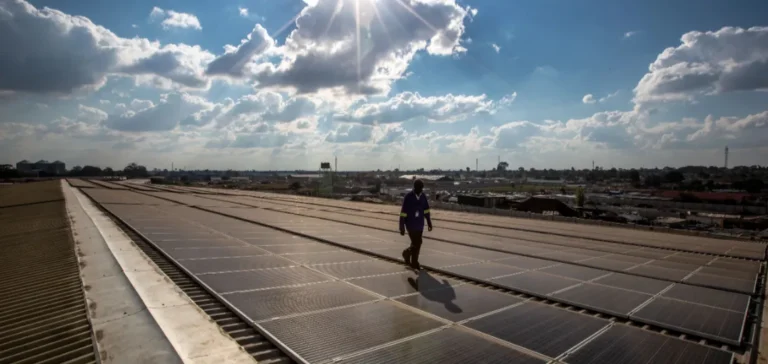African countries are seeking to capture a larger share of the value created in energy technology chains, currently dominated by industrialised economies. Less than 5% of this value is currently captured by emerging and developing countries outside China, according to the latest available data. The continent remains confined to mining activities, with limited involvement in industrial processing and technological manufacturing.
The International Energy Agency (IEA) was requested by the South African government to provide strategic analysis on industrial development opportunities linked to energy technologies. The aim is to support discussions scheduled as part of the G20 meetings to be held in Johannesburg in 2025, by integrating Africa-specific challenges into global dialogues.
Still limited local capacity
Few facilities currently exist in Africa to process critical minerals such as lithium, cobalt or manganese, although these are abundant in several African subsoils. Manufacturing plants for battery components, solar panels or wind systems remain rare, despite rapidly growing global demand.
The lack of industrial infrastructure limits local value creation and economic returns for producing countries. The IEA estimates that investments in refining, metallurgy and equipment manufacturing could enable several African states to emerge as industrial players in global energy chains.
Towards an upgrading strategy
The report proposes to align public policies towards the creation of regional transformation and technological production hubs. Such an approach would allow resource pooling and strengthen the economic viability of industrial projects. South Africa, for instance, is currently examining ways to structure local value chains around its platinum, vanadium and manganese resources.
In parallel, countries like the Democratic Republic of Congo and Mozambique are considering how to capture added value in the battery production chain. However, these ambitions require significant investments in training, logistics, industrial standards and access to financing.
A diplomatic and economic lever
The desire of some African countries to move up the value chain comes in a context of global reconfiguration of strategic raw material supply. Geopolitical instability and trade tensions are increasing interest in more diversified and secure sources.
The role of Africa in global clean technology supply chains may become a key topic in international negotiations. “There is real potential for African countries to become industrial links in global chains, beyond their role as resource suppliers,” the study states.






















